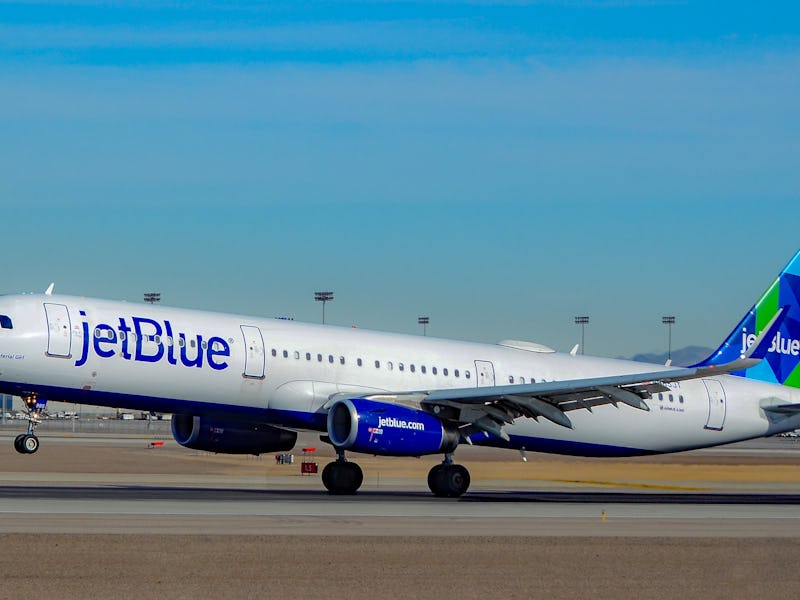Fighting polluter's stigma, JetBlue aims to become first carbon-neutral U.S. airline
Planes are seen as dirty. JetBlue wants to clean things up.

JetBlue just announced it plans to become the first carbon-neutral U.S. airline this year. Considering air travel accounts for roughly 2.5 percent of all carbon emissions, that’s a big deal. The company says it will “offset carbon dioxide emissions (CO2) from jet fuel for all domestic JetBlue flights beginning in July 2020.”
Robin Hayes, CEO of JetBlue, said in a statement that the company is doing what it can to help fight climate change.
“Air travel connects people and cultures, and supports a global economy, yet we must act to limit this critical industry’s contributions to climate change,” Hayes said. “We reduce where we can and offset where we can’t. By offsetting all of our domestic flying, we’re preparing our business for the lower-carbon economy that aviation – and all sectors – must plan for.”
Humans send carbon dioxide into the atmosphere in a number of ways, but transportation is a huge part of that, with approximately 15 percent of manmade carbon dioxide comes from cars, trucks, airplanes, ships and other vehicles, according to the Center for Biological Diversity.
Flying in particular have come under attack. Inspired by young activist Greta Thunberg, many in Sweden have given up airplanes for trains.
JetBlue partnered with the nonprofit carbon reduction and climate solutions organization Carbonfund.org back in 2008, and it claims it has been able to offset more than 2.6 billion pounds of CO2 emissions since that partnership began. JetBlue will now be partnering with EcoAct and South Pole to reach its carbon offset goals.
“This expansion is expected to offset an additional 15-17 billion pounds (7 to 8 million metric tons) of emissions per year – the annual equivalent of removing more than 1.5 million passenger vehicles from the road,” the company wrote in a press release. “JetBlue will offer ways for the airline’s customers and communities to connect with the carbon offsetting projects.”
Starting this year, JetBlue will also be purchasing “sustainable aviation fuel” from an oil refining and marketing company named Neste. This fuel is made from waste and residue raw materials, and JetBlue claims the fuel has an 80 percent smaller carbon footprint than regular jet fuel.
In order to offset its carbon emissions, JetBlue will support forest conservation and landfill gas capture projects, and the company will invest in solar and wind farms. It is also investing in new, more efficient planes.
“The airline industry is one of the few industries that has collectively committed to an international emissions reduction goal,” Hayes said. “Air travel brings so much good to the world and JetBlue has always been about making our essential industry better. Carbon offsetting is a bridge to, not a silver bullet for, a lower carbon future. Reducing and mitigating our greenhouse gas emissions is a fundamental aspect of our business plan and our mission to inspire humanity.”
While JetBlue will be the first U.S. airline to go carbon neutral, it won’t be the first airline in the world to go carbon neutral. EasyJet, which is based in England, went carbon neutral back in November. United Airlines has a carbon offset program, but the airline has not gone carbon neutral.
See also: Tesla Electric Jet: Elon Musk Predicts When Planes Could Ditch Fuel
It remains to be seen if other airlines will join JetBlue in its pledge to go carbon neutral, but airlines wouldn’t have to work so hard to become carbon neutral if they used electric planes. Unfortunately, it might take a couple of decades for us to get there.